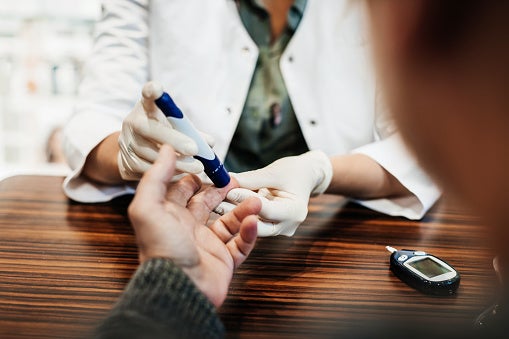Stem cell therapy for type 1 diabetes ‘could eliminate need for insulin’
New therapy could help people with the condition to regulate blood sugar levels, reports Emily Atkinson

A replacement pancreas could help people with type 1 diabetes regulate their blood sugar levels and eradicate the need to inject themselves with insulin, a study has found.
The condition causes the pancreas to progressively reduce the amount of insulin it produces, until it stops making any at all.
But scientists now say a stem cell therapy called PEC-Direct could give them a new pancreas.
Researchers found that people who underwent the treatment saw the amount of C-peptide - a substance made in the pancreas along with insulin - that their body produced increase substantially.
Both substances are released from the pancreas at the same time in roughly equal amounts, which means measuring C-peptide can indicate how much insulin the body is making.
The findings, presented at the Endocrine Society’s annual meeting in Atlanta, Georgia, mark the first time that substantial increases in C-peptide have been shown in type one diabetics using a stem-cell based treatment.
And the team of US scientists behind its conception believe the therapy could end the need for people with the condition to use finger sticks, regularly inject themselves with insulin and carry around unwieldy devices.
It is hoped the therapy will give those suffering a long-term source of insulin so their blood pressure levels can stay stable without the need for such devices.
The treatment also reduces the risk of someone accidentally causing their blood sugar levels to plummet to dangerously low levels, which can occur after injecting insulin.
The new device constitues a pouch containing stem cell derived pancreatic cells which mature into insulin-producing cells once implanted into the body.
And the open device membrane allows blood vessels to grow into the device to contact the cells.
In order to avoid an immune reaction, those receiving the treatmet have to take immunosuppressive drugs.
The therapy is intended for patients with high risk type 1 diabetes, who may be especially vulnerable to acute complications due to factors such as recurrent severe low blood sugar, or frequent and extreme blood sugar fluctuations that are difficult to control.
For the study, 10 people with type one diabetes who had been diagnosed at least five years before the start of the study were given the stem cell therapy.
Participants had hypoglycemia unawareness, which meant they were not able to tell when their blood sugar levels were too low.
Initial data from one patient showed a significant increase in the amount of C-peptide their body was producing, which led to improvements in their body’s ability to regulate blood glucose levels six months after they were given PEC-Direct.
Since then, increased C-peptide levels were seen in multiple patients, along with decreases in average blood sugar levels over the past three months by as much as 1.5 per cent and decreases in the amount of insulin patients needed to administer by as much as 70 per cent.
Dr Manasi Sinha Jaiman, chief medical officer of ViaCyte Inc, which created the therapy, said: “This research represents the first instance in multiple patients of clinically relevant increases in C-peptide, indicative of insulin production, with a stem cell-based therapy delivered in a device.
“The results suggest stem cell-based replacement therapy has the potential to provide blood glucose control and could one day eliminate the need for injecting or dosing insulin externally.
“The study provides further proof-of-concept that continued optimisation of PEC-Direct has promise as a functional cure for type one diabetes.”






Join our commenting forum
Join thought-provoking conversations, follow other Independent readers and see their replies
0Comments